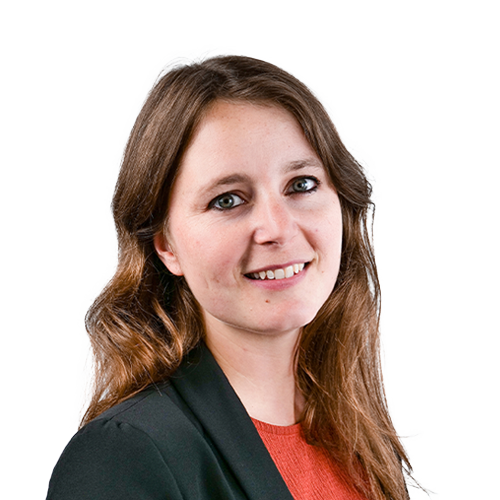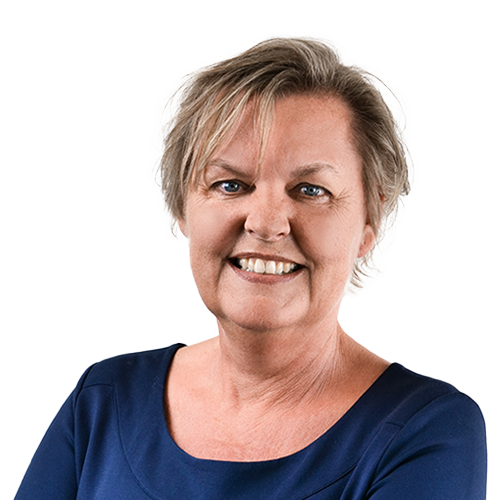The Netherlands
Active since 1949
The Van Leer Foundation has been active in the Netherlands since 1949. Our work focuses on supporting families to improve their children’s life chances and close the gap in development, health and education outcomes, where around 15% of families face serious challenges in being able to give their children a strong start in life.
We prioritise support to parents and other caregivers living in disadvantaged settings by strengthening the social networks and neighbourhoods, professionals and services that support them during the crucial first 1,000 days of their children’s lives. We also work closely with leaders to embed parent and caregiver wellbeing in all levels of government, with a focus on increasing access and scaling up policies and practices that support disadvantaged families in the early years.

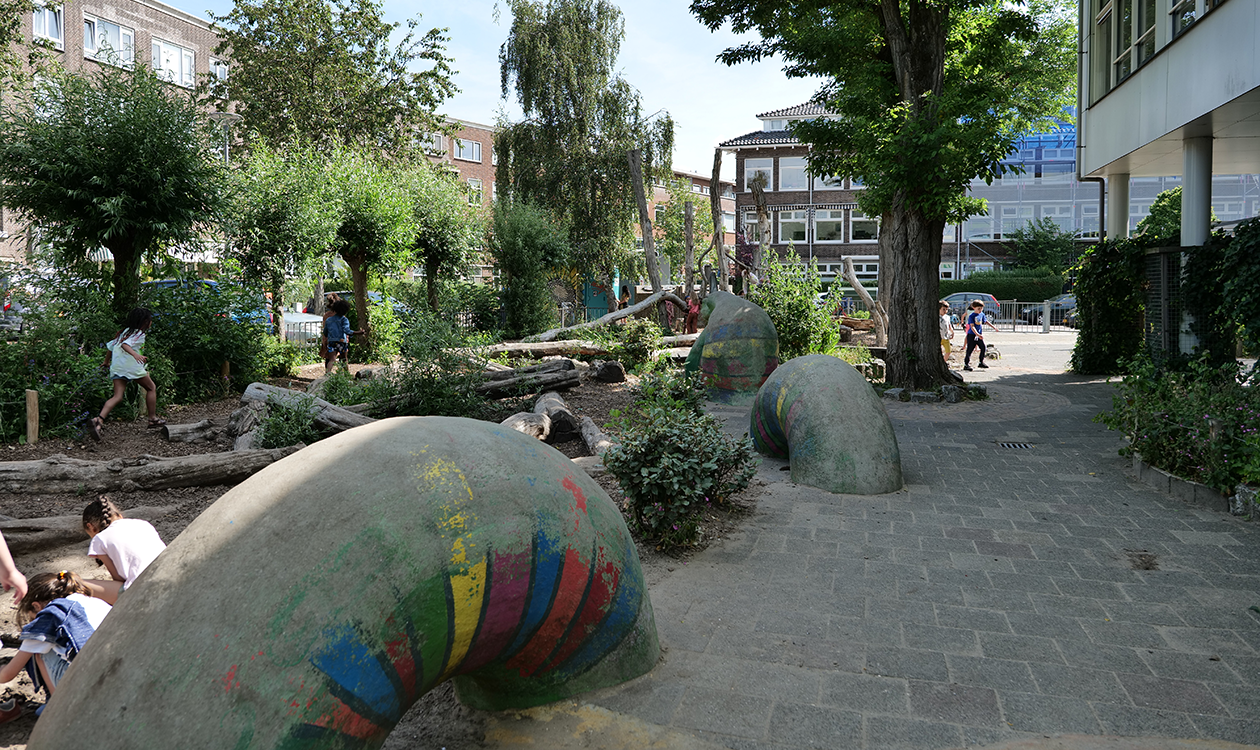
We support the national and international scale up of the “green and blue schoolyards” model of IVN, first developed in Rotterdam. This initiative addresses child-friendliness and climate adaptation agendas through a common solution: green instead of concrete schoolyards. The programme transforms schoolyards into nature-rich playgrounds that contribute to healthy child development, climate adaptation and community health. The green and blue outdoor area can be used as a classroom, where children familiarise themselves with nature and the climate at an early age in a playful, natural way. They are also open to the community outside of school hours, so they benefit families in disadvantaged neighbourhoods where green public space is sparse.
Our portfolio prioritises cross-sector collaboration to improve services, neighbourhoods, communities, and policymaking. We work with our partners to increase (social) support for disadvantaged families, access and use of green public spaces, as well as family-friendly urban neighbourhoods. To institutionalise support to parents and caregivers of young children, we focus on and monitor the effects of policy changes, such as access to childcare and extending paid parental leave.
At the local government level, together with municipalities, we scale accessible and cost-effective services for families with young children to help create healthier and more inclusive towns and cities, such as through the Solid Start Action Programme that improves early years collaboration between the social, medical and informal community domains in almost all Dutch municipalities.
 Case
10 design elements help women to make informed breastfeeding decisions
Case
10 design elements help women to make informed breastfeeding decisions
 Case
Helping municipalities to deliver joined-up services
Case
Helping municipalities to deliver joined-up services
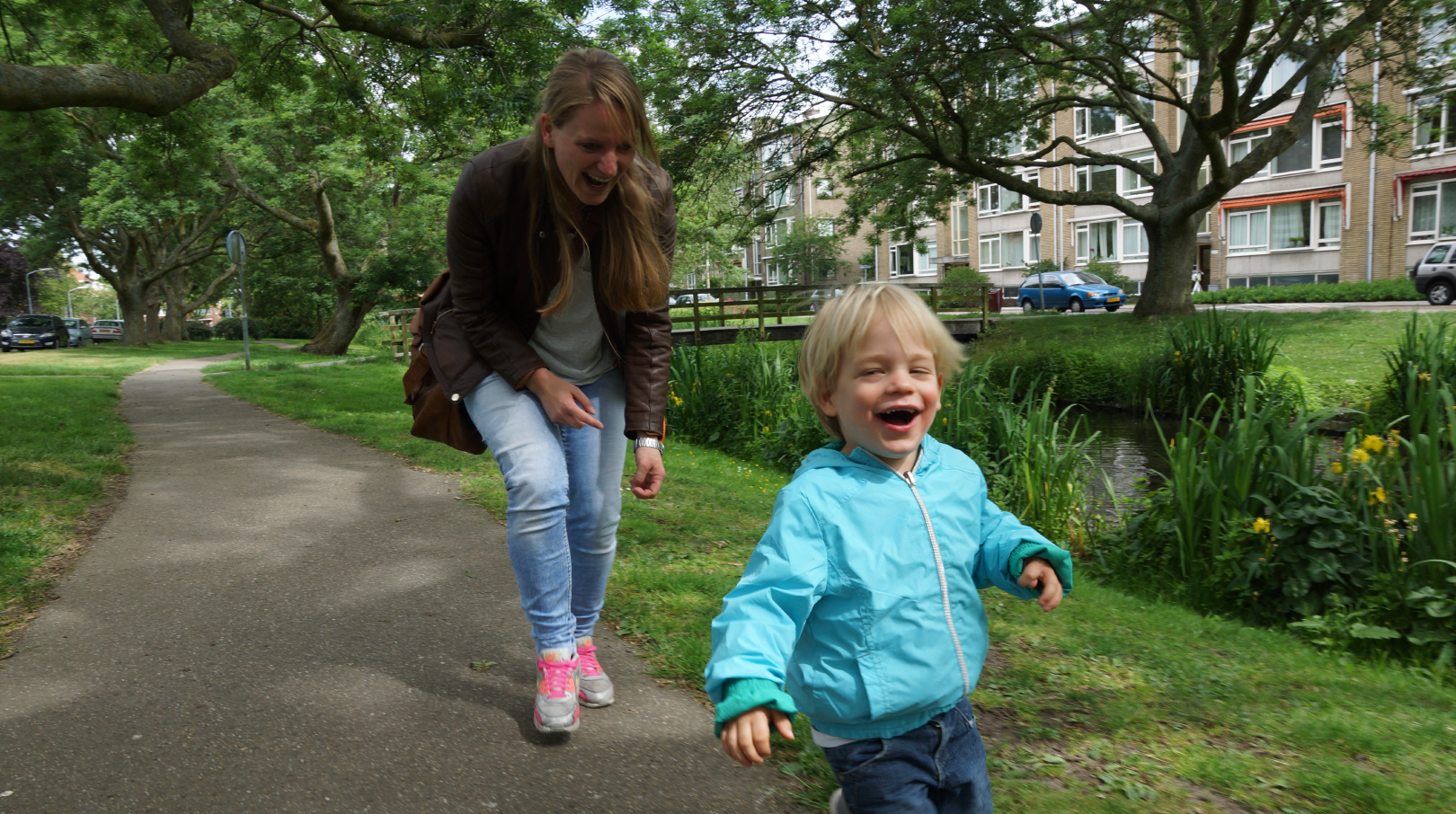 Management case studies
Mothers of Rotterdam: Scaling a Social Services Programme in the Netherlands
Management case studies
Mothers of Rotterdam: Scaling a Social Services Programme in the Netherlands
 Collection
Urban95: Management Case Studies
Collection
Urban95: Management Case Studies
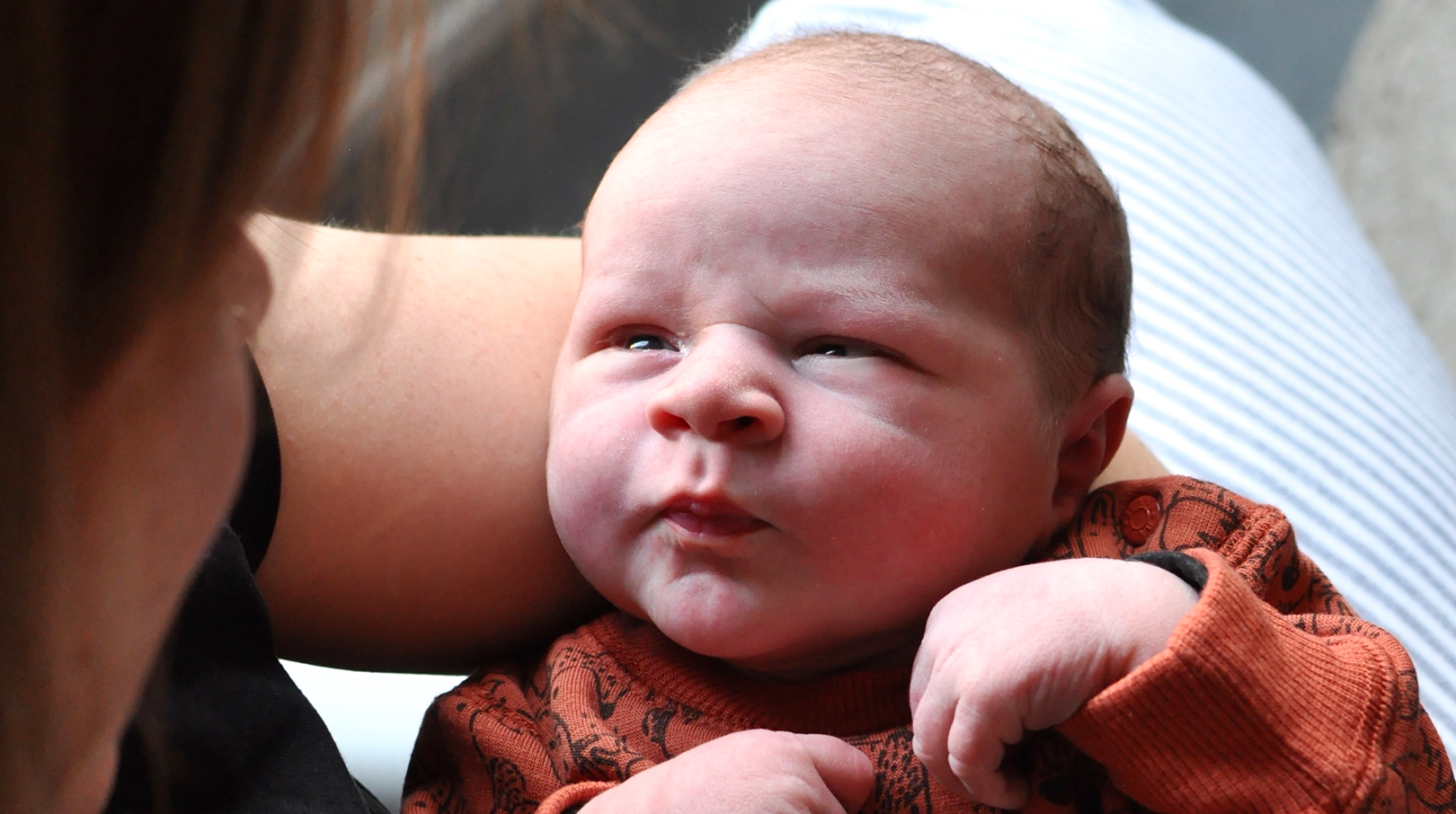 Management case studies
A Solid Start for Every Child: The Netherlands Integrates Medical and Social Care, 2009−2022
Management case studies
A Solid Start for Every Child: The Netherlands Integrates Medical and Social Care, 2009−2022
 Management case studies
Efforts to Support the Extension of Birth Leave in the Netherlands
Management case studies
Efforts to Support the Extension of Birth Leave in the Netherlands

